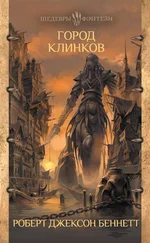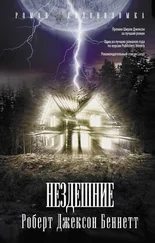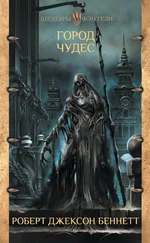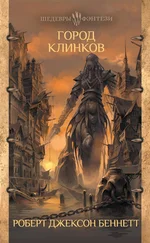His assistant nodded. “Correct, sir.” She gestured to the walls behind her. “Manufacturing, security, lighting, and transport. That’s the extent of the wall’s load.”
Gregor looked at the walls and slowly realized what she meant. “The wall” was the industry term for a tremendous wall of thousands of white tiles, covered in sigils, which slid up or down on a short track. Each tile represented a scriving definition: if the tile was in the up position, the definition was inactive, and thus did not work; if it was in the down position, then it did.
This sounded simple, but only a scriver with decades of high-level training could look at a wall and tell exactly what was going on. A lexicon’s wall, of course, was carefully watched and maintained: if someone slid the wrong tile up, and deactivated a crucial definition, it could, say, render all the scrived carriages in the Dandolo campo suddenly unable to stop. Which would be bad.
Or, if someone slid several critical tiles down, and activated some extremely complicated definitions, then it could overload the lexicon, and then…
Well. That would be much, much worse.
Because a lexicon was essentially a giant violation of reality — that was why it was so unpleasant to be close to one. The consequences of a lexicon going haywire were too horrific to contemplate. And this was the chief reason that the city of Tevanne, with all of its power, corruption, and fractious merchant houses, had yet to experience much deliberate turmoil: as the entire city was essentially maintained by a system of huge bombs, that tended to make people cautious.
“How troublesome,” said Gregor.
“Yes. Isn’t it?” Orso peered at him suspiciously. “Doesn’t your mother know all this? I thought I’d been a good boy and properly kept her up to date.”
“I cannot speak to my mother’s knowledge regarding your situation here, Hypatus,” said Gregor. “I’m not here about the blackouts. Rather, I had a question for you regarding the waterfront.”
“The waterfront ?” said Orso, irritated. “Why the hell would you bother me about that?”
“I wanted to ask you about the theft that took place.”
“What a waste of time! You can’t expect me to…” He paused. “Wait. Theft? You mean the fire.”
“No, no,” said Gregor politely. “I mean the theft. Our investigations suggest that the fire was set as a distraction to allow a thief to get at our safes.”
“How do you know that?” he demanded.
“Because we have looked in our safes,” said Gregor. “And found something missing.”
Orso blinked, very slowly. “Ah,” he said. He was quiet for a moment. “I…had thought the safes burned down along with the Waterwatch headquarters. I thought they were destroyed.”
“That was nearly the case,” said Gregor. “But when it became clear that the fire would spread, I had all of our safes loaded on carts and removed to safety.”
Again, Orso blinked. “Really.”
“Yes,” said Gregor. “And we found something was stolen. A small, plain, wooden box, from safe 23D.”
Orso and his assistant had gone very, very still. Gregor could not help but feel pleased.
It’s nice to be right, sometimes.
“Odd…” said Orso carefully. “But you said you had a question for me — and I’ve yet to hear a question, Captain.”
“Well, I did some follow-ups in the Commons last night, trying to track down the thief. I located their fence — the person who sells the things a thief steals — and found a note in their belongings referencing the Dandolo hypatus, in relation to this theft, and fire. My question, Hypatus, would be — why do you think that is?”
“I’ve no idea.” The man’s face — which had previously been riddled with contempt, impatience, and suspicion — was now perfectly bereft of almost all emotion. “You think I commissioned the theft, Captain?”
“I think little so far, because I know little so far, sir. You could have been the person who was robbed.”
Orso smirked. “You think someone stole scriving definitions from me?”
A diversion. But Gregor was willing to be diverted for a bit. “Well…they are the most valuable thing in Tevanne, usually. And they can be quite small, sir.”
“They can be. That’s true.” Orso stood, walked over to a shelf, pulled out three huge tomes, each about seven inches thick, and walked back over to Gregor. “Do you see these, Captain?”
“I do.”
Orso dropped one on the ground, and it made a large thud . “That is the opening definition for reducing a lexicon.” Then the second — which also made a huge thud . “This is a continuation of that definition.” He dropped the third. “And that is the closing definition for reducing a lexicon. Do you know how I know that?”
“I…”
“Because I wrote them, Captain. I wrote every sigil and every string in those big goddamn books.” He stepped closer. “A scriving definition might have fit in a small box. But not one of mine .”
It was a good performance. Gregor was almost impressed. “I see, sir. And nothing else was stolen from you?”
“Not that I’m aware of.”
“Well, then. I suppose the fence made the note concerning you by accident, perhaps.”
“Or you misread it,” said Orso.
Gregor nodded. “Or that. We shall find out soon, I believe.”
“Soon? Why?”
“Well…I think I am close to catching the thief. And unless my instincts are incorrect, I think that their arrangements to sell what was stolen have gone quite wrong. Which means they might still have what was stolen. So we might soon find it, and get to the bottom of all this.” He smiled broadly at Orso. “Which I’m sure we all find reassuring.”
Orso was perfectly frozen now — the man was barely breathing. Then he said, “Yes. We certainly do, I’m sure.”
“Yes.” Gregor looked at the grand machine behind him. “Is it true what they say about lexicons, and the hierophants, sir?”
“What?” said Orso, startled.
“About the hierophants. I’ve heard old stories about how when people were close to a true hierophant — like Crasedes the Great himself — they suffered from powerful migraines. Much like how one feels these days, when close to a lexicon. Is that true, sir?”
“How should I know?”
“I understand that you’re interested in the Occidentals yourself, yes?” asked Gregor. “Or you were, once.”
Orso glared at him, and the severity of his harsh, pale eyes rivaled Ofelia Dandolo’s stare. “Once. Yes. But no longer.”
For a moment the two men just stared at each other, Gregor smiling placidly, Orso’s face fixed in a furious glare.
“Now,” said Orso. “If you will excuse us, Captain.”
“Of course. I will let you get back to your business, sir,” said Gregor. “Sorry to trouble you.” He started toward the steps, but paused. “Oh, I’m sorry, but — young lady?”
The girl looked up. “Yes?”
“I apologize, but I believe I have been quite rude. I don’t think I ever learned your name.”
“Oh. It’s Grimaldi.”
“Thank you — but I meant your first name?”
She glanced at Orso, but he still had his back to her. “Berenice,” she said.
Gregor smiled. “Thank you. It was nice meeting you both.” Then he turned and trotted up the stairs.
Читать дальше
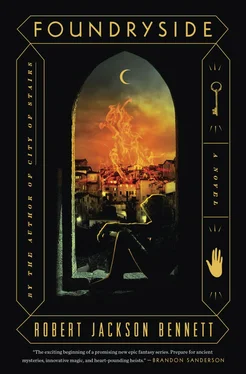






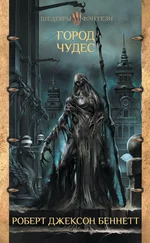
![Роберт Беннет - Город чудес [litres]](/books/405553/robert-bennet-gorod-chudes-litres-thumb.webp)
